About Gendai Ryu Krav Maga and Jiu-Jitsu
Foundation of Gendai Ryu
Gendai Ryu, translating to “Modern School,” was formalised in the late 1980s by Sensei Vernon Rosenberg through an international collaboration with martial arts practitioners in the USA and Europe. This innovative martial arts school was established in response to the need for more street-practical elements than those offered by traditional Ninjitsu and Jujitsu schools. The challenging and volatile environments of South Africa necessitated a more combative approach, leading to the creation of the South African Ninjitsu Survival League in the early 1990s.
Sensei Vernon Rosenberg’s Contributions and Legacy
Sensei Vernon, with a diverse background that includes a 6th Dan in Ninjitsu, 2nd Dan in Gosoku Ryu Karate, Jujitsu, Atemi Jitsu, and a black belt in Kung Fu, brought extensive experience to Gendai Ryu. His roles in tactical policing, emergency response, law enforcement, and bodyguard training further enriched the school’s approach. Despite his career being later shortened by degenerative back issues which limited his active teaching, he continued to influence Gendai Ryu as the honorary head of the system until late 2013.
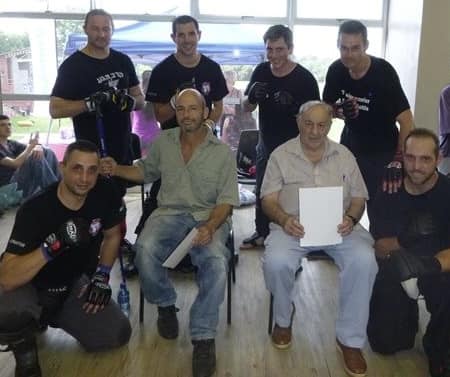
Current Head of System | Dr. Gavriel Schneider
After Sensei Vernon stepped down, Dr. Gavriel Schneider took over as the head of Gendai Ryu, steering the system through its next phase of evolution. Dr. Schneider’s extensive background in various martial arts and practical combat training shaped the development of two core branches within Gendai Ryu:
- Practical Self-defence and Combatives: Operating under the Advanced Combat Training (ACT) system and focusing on Gendai Krav Maga (GKM), this branch emphasises real-world application and effectiveness.
- Jiu-Jitsu and Mixed Martial Arts (MMA): Continues to build on the system’s combative roots, offering training in Jiu-Jitsu and MMA to cater to a broad spectrum of martial arts enthusiasts seeking a versatile combat skill set.
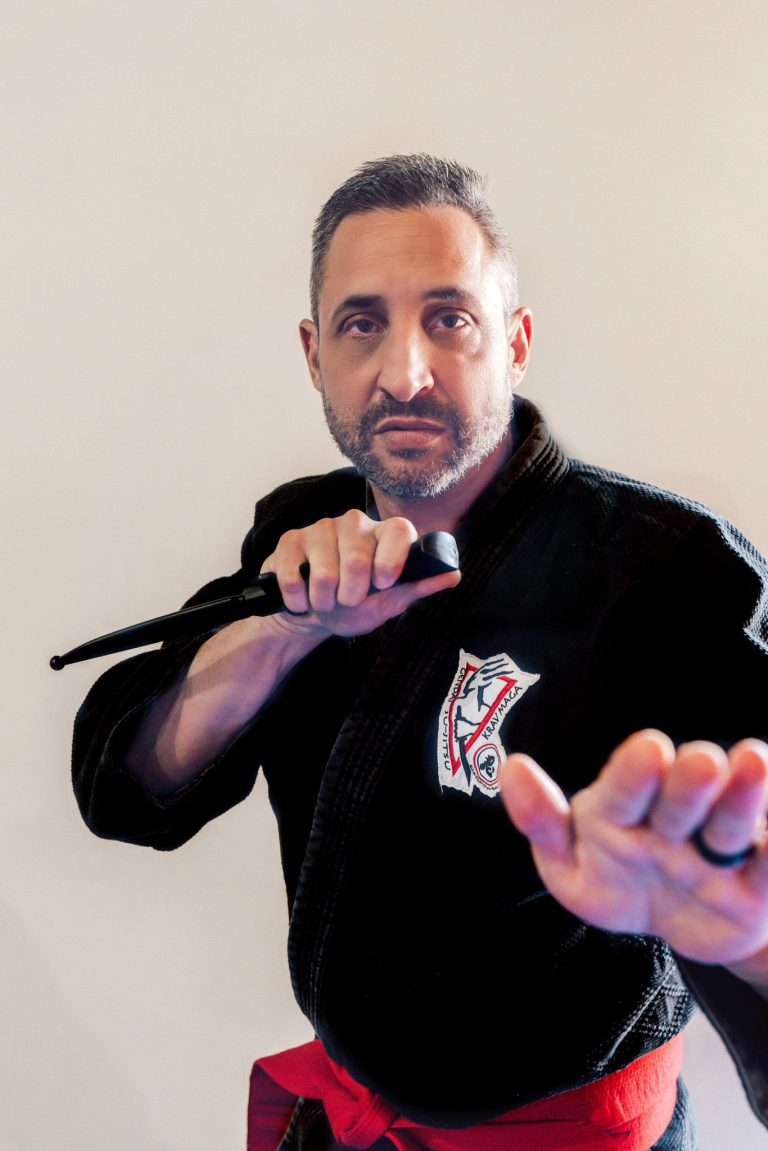
Dr. Gavriel Schneider Background
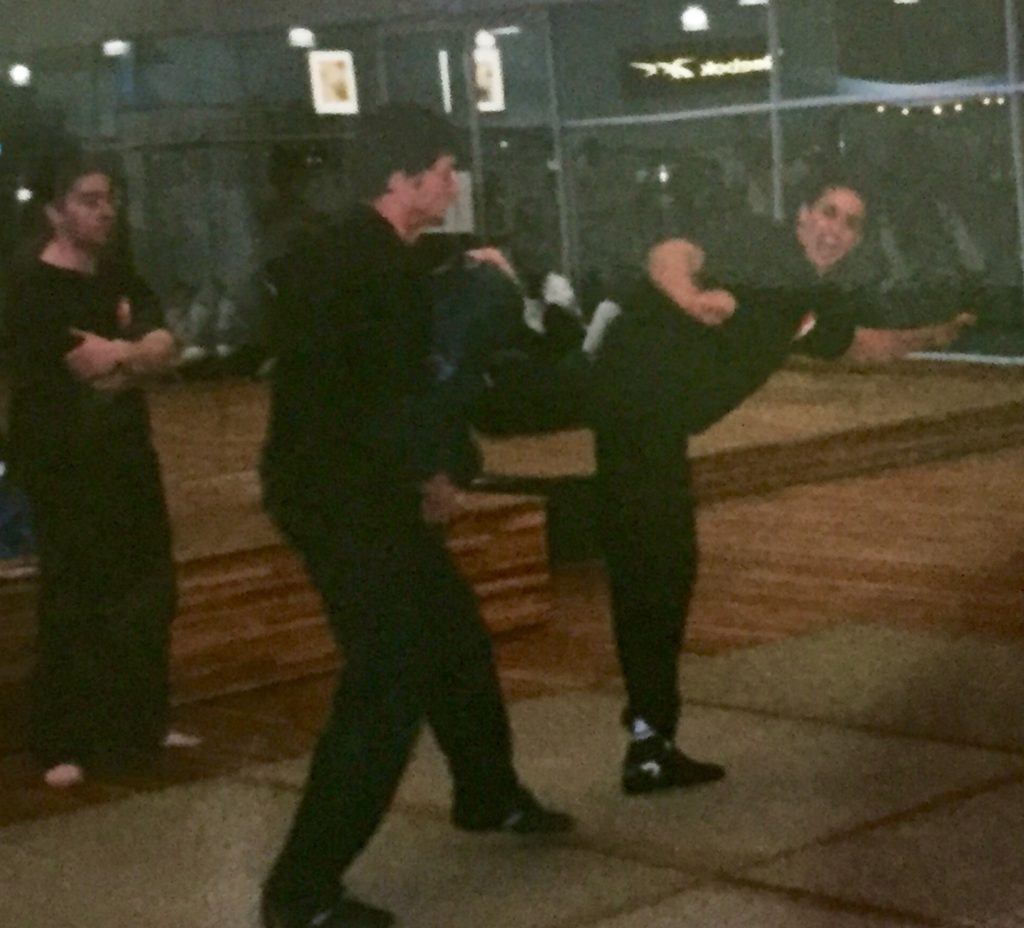
Early Years and Training
Gavriel’s martial arts training commenced under the guidance of Sensei Vernon Rosenberg, transitioning to Koga Ryu Ninjitsu in the late 1980s. His dedication was marked by his first black belt in the Gendai Ryu system in 1992. The same year, he started imparting his knowledge in this system, fostering a new generation of martial artists. Gavriel also explored Taekwondo, becoming a formidable competitor and a national team member, representing South Africa in the 1997 Taekwondo World Cup.
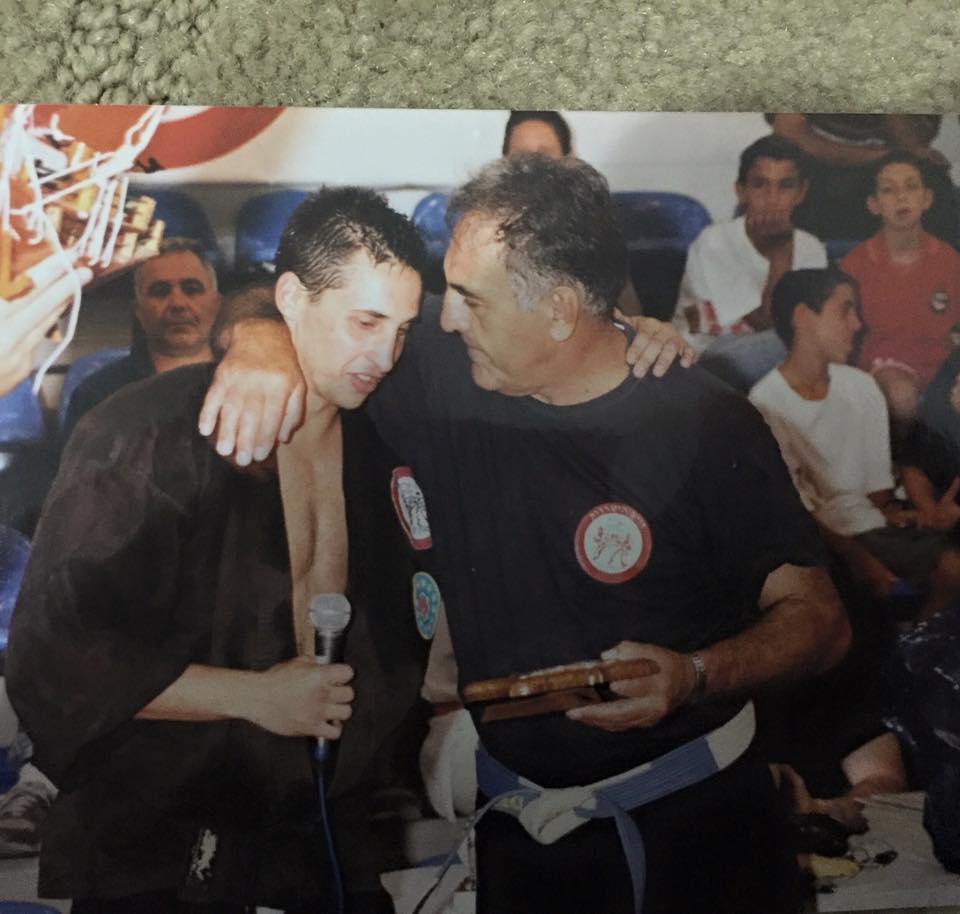
Training and Achievements in Israel
In 1996, Gavriel Schneider had the distinct privilege of becoming a live-in student under Grandmaster Soke Dennis Hanover in Herzliya, Israel. During this pivotal year, he dedicated 6-12 hours daily at the main school, significantly advancing his expertise in DSJJ/Hisardut. He achieved his 1st Dan in the middle of the year and escalated to 2nd Dan by year’s end. His time in Israel also included rigorous training at the Wingate Institute, where he was exposed to Military Krav Maga and met Imi Lichtenfeld, the legendary founder of Krav Maga before he passed away in 1998. Gavriel’s intensive training regimen was complemented by his certification as an international practical shooter by the Israel Shooting Association, following extensive training with both pistol and submachine gun.
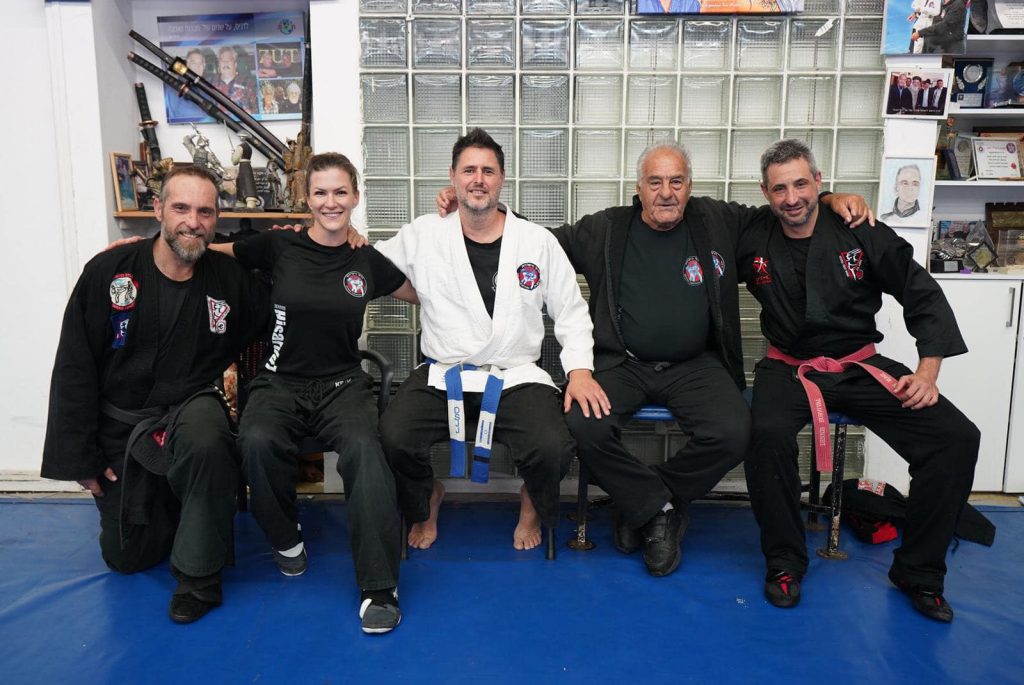
Ongoing Development with Dr. Dennis Hanover
Gavriel Schneider remained a dedicated student under Dr. Dennis Hanover, consistently engaging in training sessions during Hanover’s numerous visits to South Africa. This commitment to continual learning was complemented by Gavriel’s almost annual trips back to Israel, reflecting his deep dedication to advancing his martial arts skills under his mentor’s guidance.
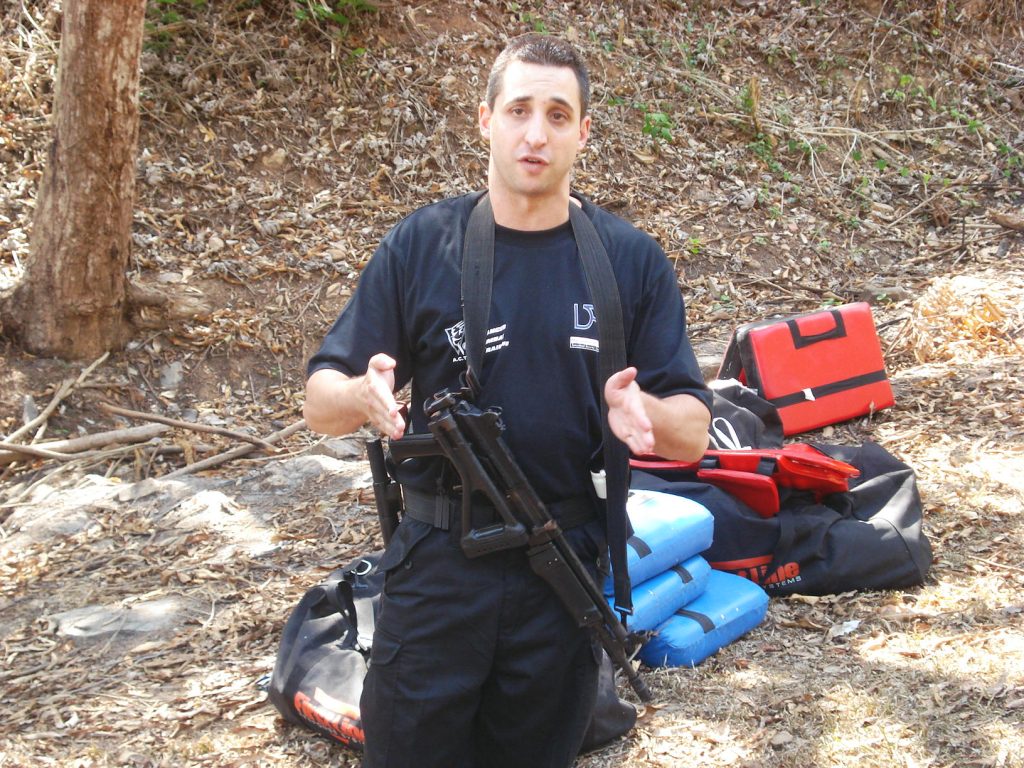
Strategic Shift in Martial Arts Focus
In 1998, Gavriel made a significant decision to stop competing in Taekwondo, marking a pivotal shift in his martial arts career. This decision was driven by his desire to concentrate more on the self-defense and practical combative aspects of martial arts. Focusing on these areas allowed Gavriel to apply his extensive combat knowledge and experience more directly to real-world situations, enhancing his effectiveness as both a practitioner and instructor in self-defence techniques.
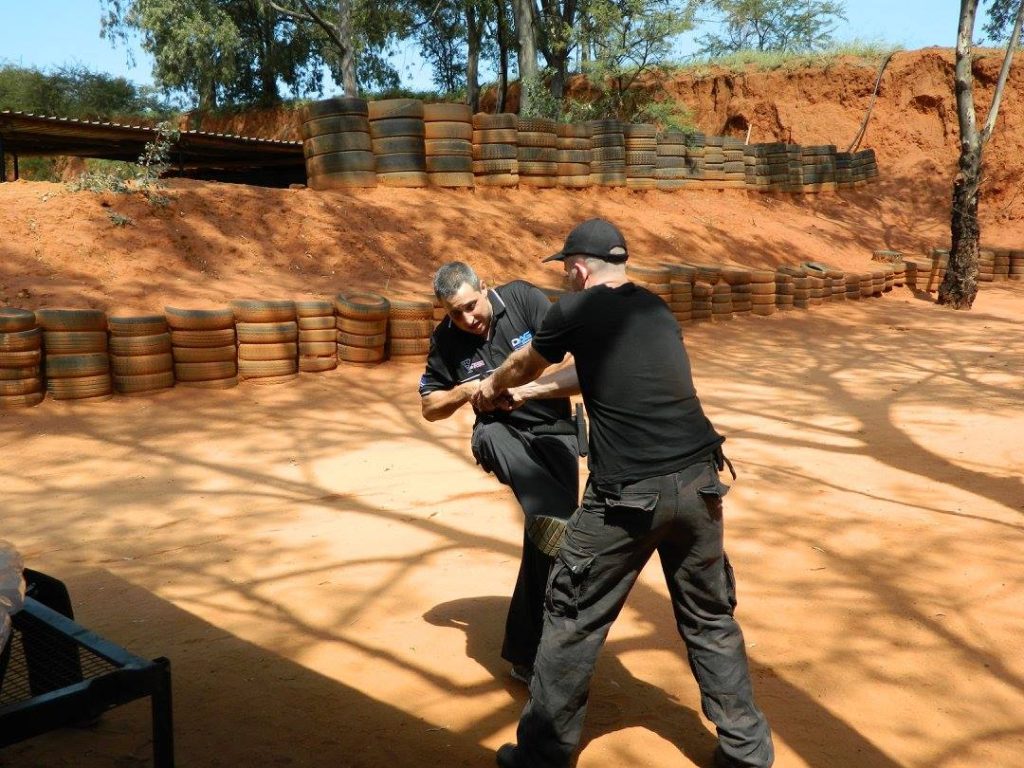
International Training and Influence
Gavriel’s pursuit of martial arts excellence took him to the USA within the same year, where he trained and attended seminars with prominent figures such as Guru Dan Inosanto, Sifu Francis Fong, and World Kickboxing Champion Jerry Rhome, among others. His commitment and skill were recognised with a 3rd Dan in Ninjitsu during this visit. Upon returning to South Africa, Gavriel continued his dedicated training and teaching in the Gendai Ryu system and Taekwondo, while also beginning to make significant contributions to the security, law enforcement, and military sectors. His expertise led to roles where he provided advanced training and operational deployment as a Bodyguard/Close Protection Officer, protecting high-profile individuals including Presidents and celebrities.
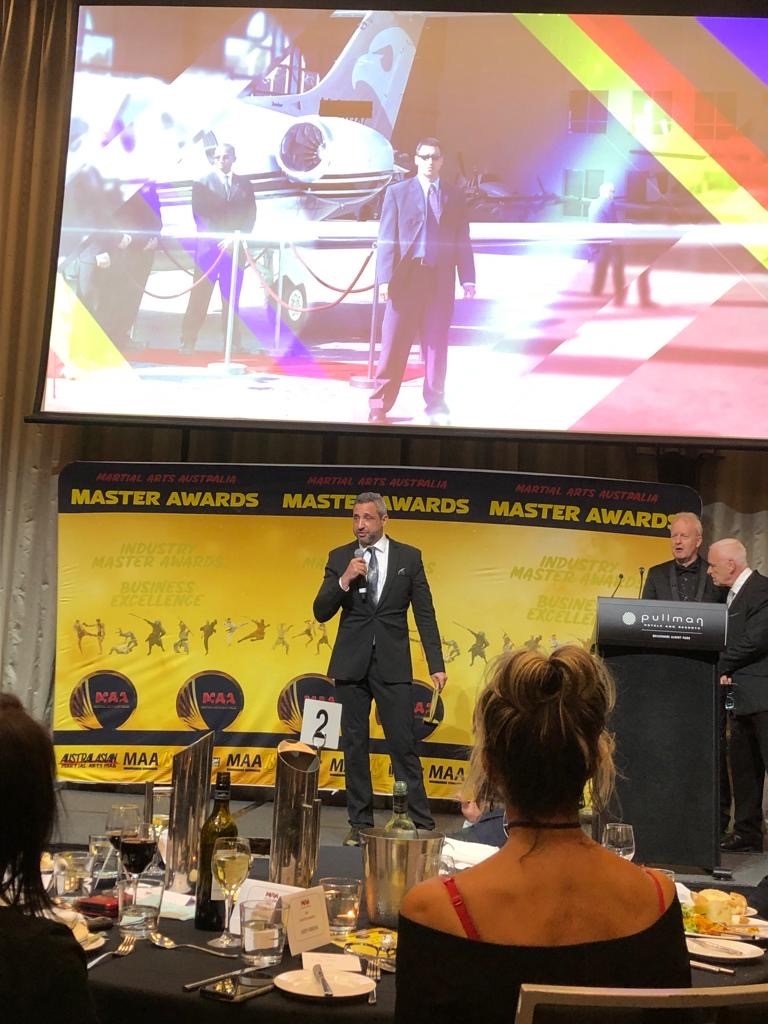
Continued Commitment and Recognition
Gavriel’s martial arts journey did not stop at training; he was also active in cross-training with renowned practitioners like Rodney King, founder of the Crazy Monkey system. His role expanded globally as he coached the South African amateur Muay Thai team in Thailand and engaged actively in disciplines like Muay Thai, Kali/Eskrima, and Brazilian Jujitsu. By 2005, Gavriel earned a 6th Dan in DSJJ from Dr. Dennis Hanover and in Ninjitsu from GM Ashida Kim, marking him as a distinguished figure in martial arts. His prowess was further acknowledged through his induction into the South African Martial Arts Hall of Fame in 2004 and the Israeli Museum of Martial Arts History in 2010. In 2023 Gavriel recieved Martial Arts Australia Master Award for Defensive Tactics Instructor of the Year.
Dr. Gavriel Schneider Summary Credentials and Achievements
- Current Leadership Roles: Head of System for Gendai Ryu and the Modern Warrior Alliance. Director of the Australian/New Zealand region for the Federation of Israeli Martial Arts (FIMA)
- Past Roles: Former Head of DSJJ/Hisardut for the Asia Pacific Region.
- Extensive Training Background: Military and law enforcement training, including work with Special Forces and protective services.
- Academic Excellence: PhD from UNISA focused on best practice use force and defensive tactics training methodology.
- Key Grades: 8th Dan Black Belt in Hisardut/Dennis Survival Jujitsu and Gendai Ryu Krav Maga and Jiu-Jitsu, 6th Dan Black Belt in Koga/Gendai Ryu Ninjitsu and 2nd Dan Black Belt in Taekwondo.
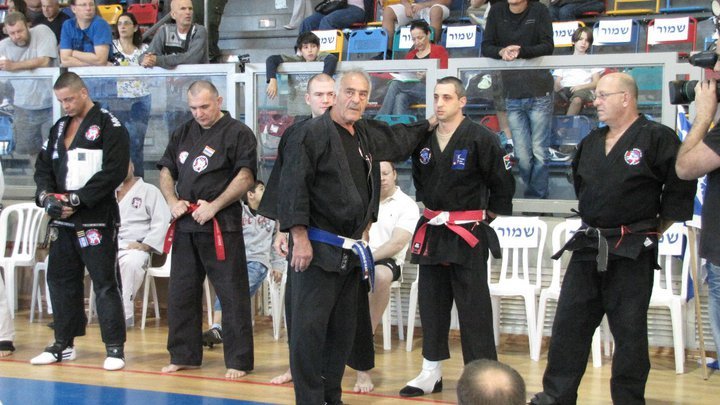
Contributions and Honors
Beyond competition, Gavriel’s expertise in martial arts has profoundly impacted the security and law enforcement sectors. His roles have ranged from a high-level bodyguard to a trainer for elite military units worldwide. His academic pursuits in force use and defensive tactics culminated in a PhD from UNISA in 2012, reinforcing his theoretical foundation in martial arts.
Current Roles and Legacy
Today, Dr. Gavriel Schneider heads the Gendai Ryu system and the Modern Warrior Alliance, reflecting a life dedicated to the study and teaching of martial arts. His accolades include induction into both the South African and Israeli martial arts halls of fame, celebrating his contributions to martial arts globally. In 2024 Gavriel was appointed as the Director of the Australian/New Zealand region for the Federation of Israeli Martial Arts (FIMA).
